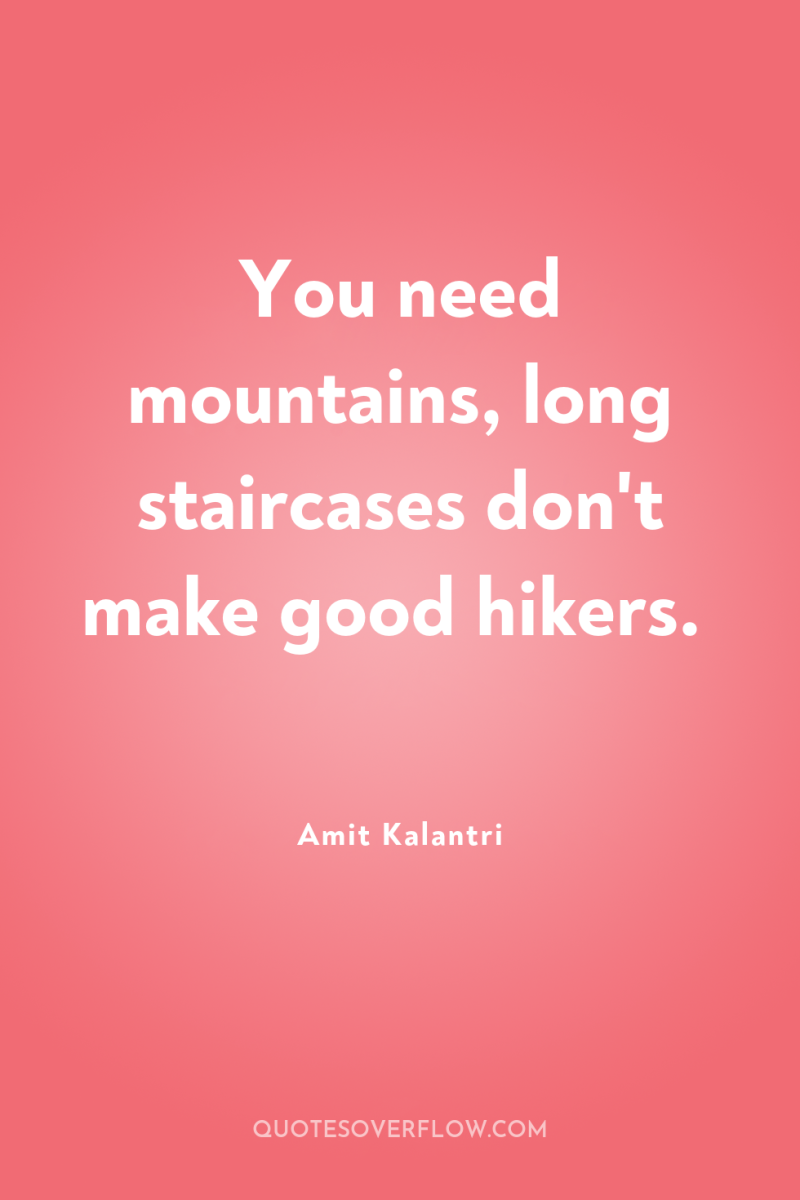
1
You need mountains, long staircases don't make good hikers.Amit Kalantri
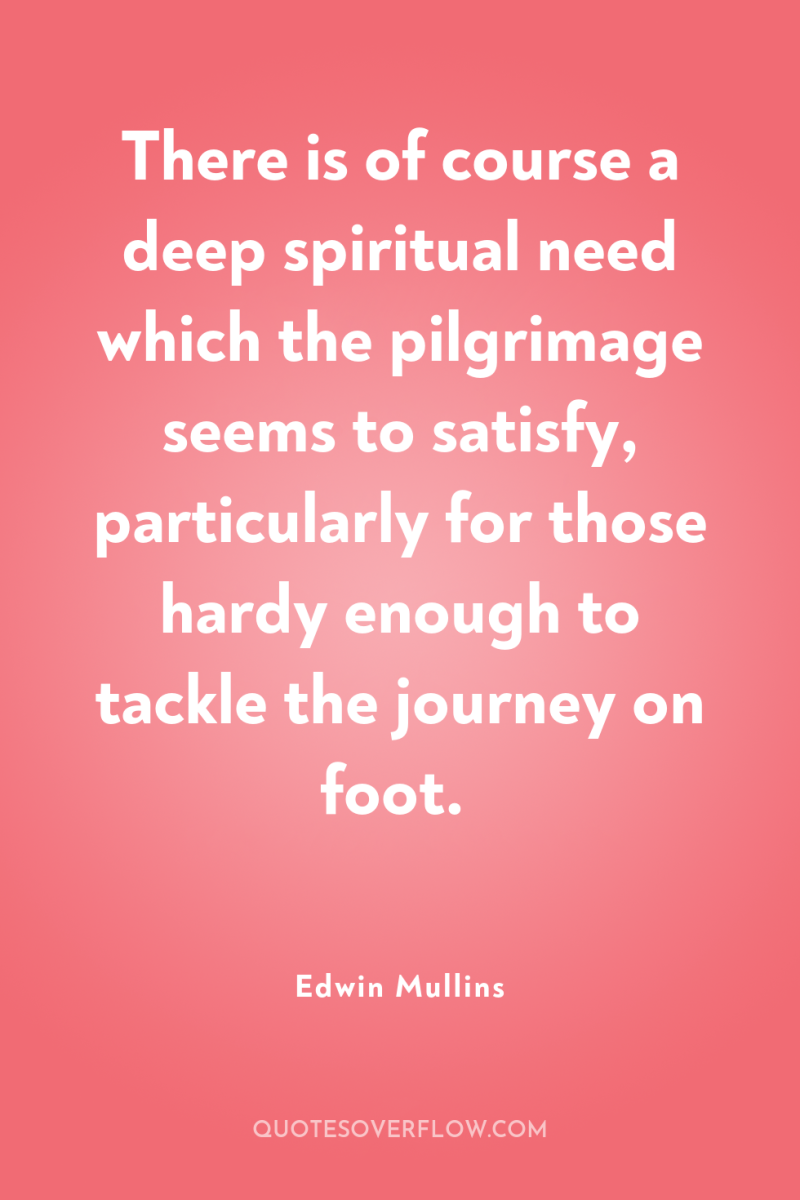
2
There is of course a deep spiritual need which the pilgrimage seems to satisfy, particularly for those hardy enough to tackle the journey on foot.Edwin Mullins
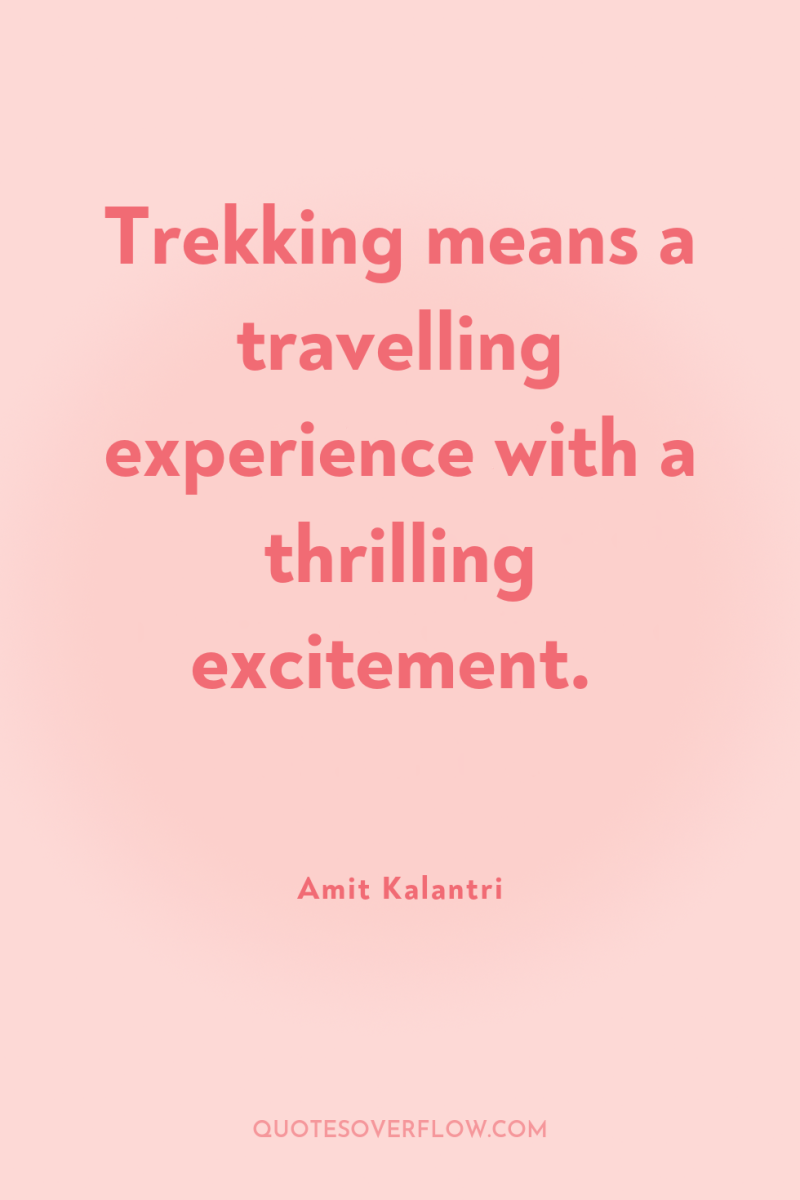
3
Trekking means a travelling experience with a thrilling excitement.Amit Kalantri
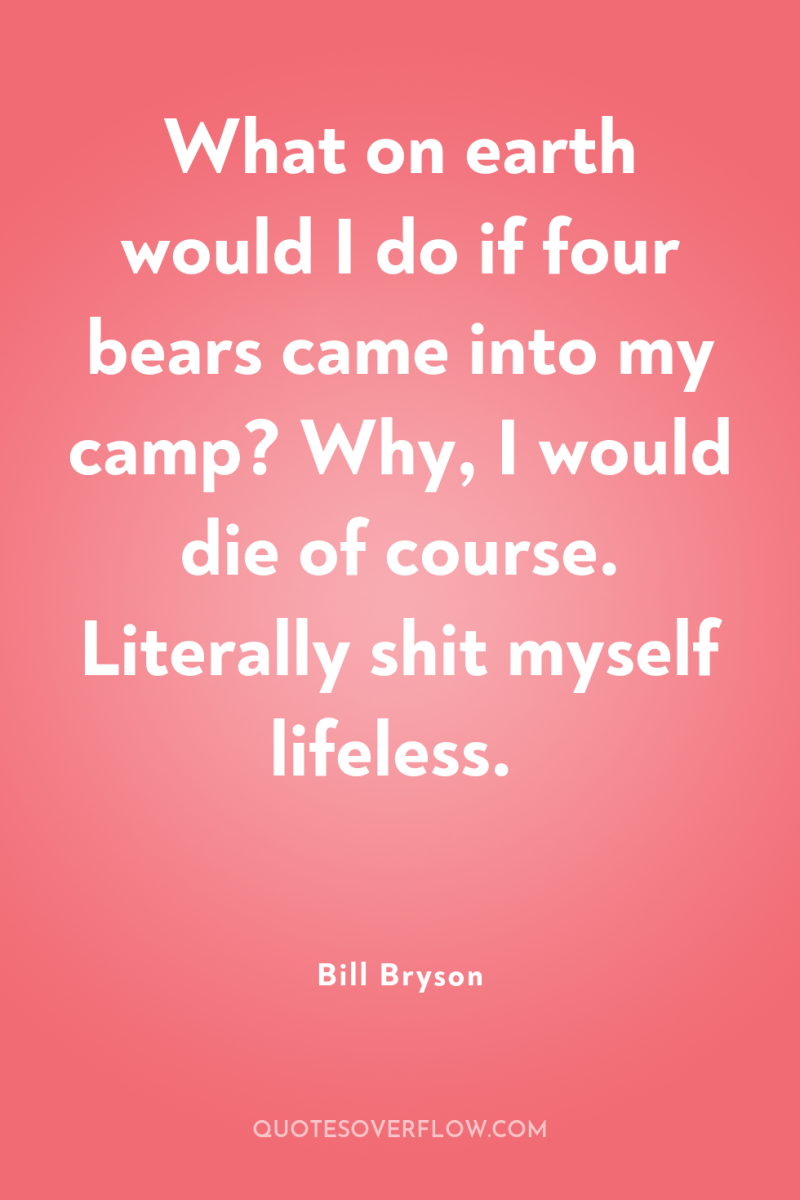
4
What on earth would I do if four bears came into my camp? Why, I would die of course. Literally shit myself lifeless.Bill Bryson
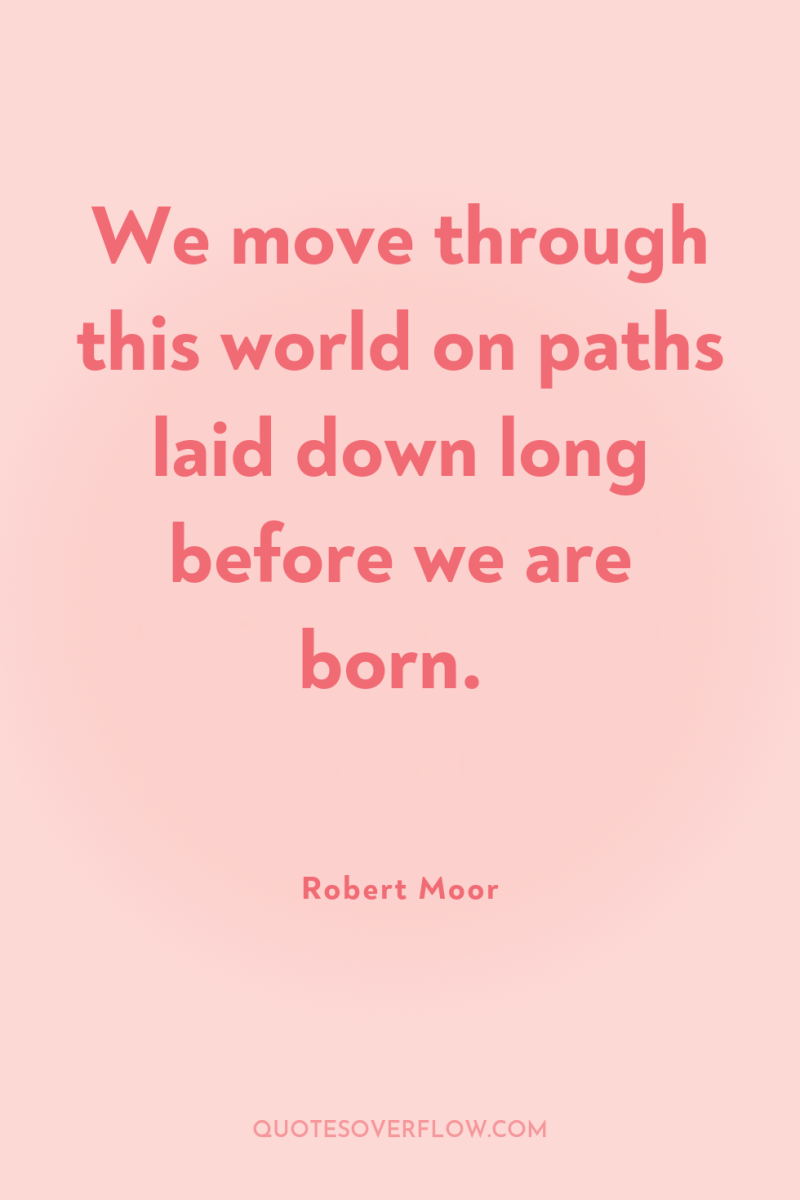
5
We move through this world on paths laid down long before we are born.Robert Moor
6
How easily such a thing can become a mania, how the most normal and sensible of women once this passion to be thin is upon them, can lose completely their sense of balance and proportion and spend years dealing with this madness.Kathryn Hurn
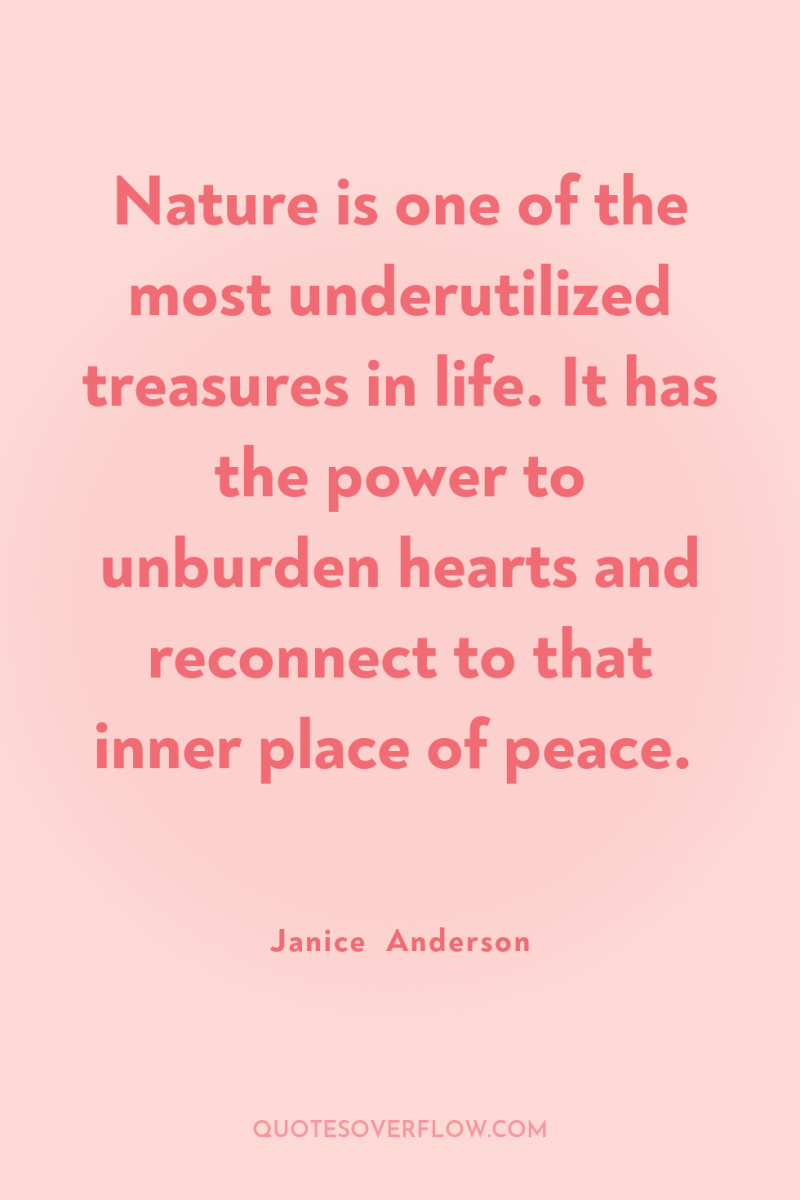
7
Nature is one of the most underutilized treasures in life. It has the power to unburden hearts and reconnect to that inner place of peace.Janice Anderson
8
The old school of thought would have you believe that you'd be a fool to take on nature without arming yourself with every conceivable measure of safety and comfort under the sun. But that isn't what being in nature is all about. Rather, it's about feeling free, unbounded, shedding the distractions and barriers of our civilization–not bringing them with us.Ryel Kestenbaum
9
The Native Americans, whose wisdom Thoreau admired, regarded the Earth itself as a sacred source of energy. To stretch out on it brought repose, to sit on the ground ensured greater wisdom in councils, to walk in contact with its gravity gave strength and endurance. The Earth was an inexhaustible well of strength: because it was the original Mother, the feeder, but also because it enclosed in its bosom all the dead ancestors. It was the element in which transmission took place. Thus, instead of stretching their hands skyward to implore the mercy of celestial divinities, American Indians preferred to walk barefoot on the Earth: The Lakota was a true Naturist — a lover of Nature. He loved the earth and all things of the earth, the attachment growing with age. The old people came literally to love the soil and they sat or reclined on the ground with a feeling of being close to a mothering power. It was good for the skin to touch the earth and the old people liked to remove their moccasins and walk with bare feet on the sacred earth. Their tipis were built upon the earth and their altars were made of earth. The birds that flew in the air came to rest on the earth and it was the final abiding place of all things that lived and grew. The soil was soothing, strengthening, cleansing and healing. That is why the old Indian still sits upon the earth instead of propping himself up and away from its life-giving forces. For him, to sit or lie upon the ground is to be able to think more deeply and to feel more keenly; he can see more clearly into the mysteries of life and come closer in kinship to other lives about him. Walking, by virtue of having the earth’s support, feeling its gravity, resting on it with every step, is very like a continuous breathing in of energy. But the earth’s force is not transmitted only in the manner of a radiation climbing through the legs. It is also through the coincidence of circulations: walking is movement, the heart beats more strongly, with a more ample beat, the blood circulates faster and more powerfully than when the body is at rest. And the earth’s rhythms draw that along, they echo and respond to each other. A last source of energy, after the heart and the Earth, is landscapes. They summon the walker and make him at home: the hills, the colours, the trees all confirm it. The charm of a twisting path among hills, the beauty of vine fields in autumn, like purple and gold scarves, the silvery glitter of olive leaves against a defining summer sky, the immensity of perfectly sliced glaciers … all these things support, transport and nourish us.Unknown
10
None of your knowledge, your reading, your connections will be of any use here: two legs suffice, and big eyes to see with. Walk alone, across mountains or through forests. You are nobody to the hills or the thick boughs heavy with greenery. You are no longer a role, or a status, not even an individual, but a body, a body that feels sharp stones on the paths, the caress of long grass and the freshness of the wind. When you walk, the world has neither present nor future: nothing but the cycle of mornings and evenings. Always the same thing to do all day: walk. But the walker who marvels while walking (the blue of the rocks in a July evening light, the silvery green of olive leaves at noon, the violet morning hills) has no past, no plans, no experience. He has within him the eternal child. While walking I am but a simple gaze.Unknown
11
Days of slow walking are very long: they make you live longer, because you have allowed every hour, every minute, every second to breathe, to deepen, instead of filling them up by straining the joints…Unknown
12
Slowness means cleaving perfectly to time, so closely that the seconds fall one by one, drop by drop like the steady dripping of a tap on stone. This stretching of time deepens space. It is one of the secrets of walking: a slow approach to landscapes that gradually renders them familiar. Like the regular encounters that deepen friendship.Unknown
13
Walking: it hits you at first like an immense breathing in the ears. You feel the silence as if it were a great fresh wind blowing away clouds. There’s the silence of woodland. Clumps and groves of trees form shifting, uncertain walls around us. We walk along existing paths, narrow winding strips of beaten earth. We quickly lose our sense of direction. That silence is tremulous, uneasy. Then there’s the silence of tough summer afternoon walks across the flank of a mountain, stony paths, exposed to an uncompromising sun.Unknown
14
This time, there’s no question of freeing yourself from artifice to taste simple joys. Instead there is the promise of meeting a freedom head-on as an outer limit of the self and of the human, an internal overflowing of a rebellious Nature that goes beyond you. Walking can provoke these excesses: surfeits of fatigue that make the mind wander, abundances of beauty that turn the soul over, excesses of drunkenness on the peaks, the high passes (where the body explodes). Walking ends by awakening this rebellious, archaic part of us: our appetites become rough and uncompromising, our impulses inspired. Because walking puts us on the vertical axis of life: swept along by the torrent that rushes just beneath us. What I mean is that by walking you are not going to meet yourself. By walking, you escape from the very idea of identity, the temptation to be someone, to have a name and a history. Being someone is all very well for smart parties where everyone is telling their story, it’s all very well for psychologists’ consulting rooms. But isn’t being someone also a social obligation which trails in its wake — for one has to be faithful to the self-portrait — a stupid and burdensome fiction? The freedom in walking lies in not being anyone; for the walking body has no history, it is just an eddy in the stream of immemorial life.Unknown
15
Walking causes a repetitive, spontaneous poetry to rise naturally to the lips, words as simple as the sound of footsteps on the road. There also seems to be an echo of walking in the practice of two choruses singing a psalm in alternate verses, each on a single note, a practice that makes it possible to chant and listen by turns. Its main effect is one of repetition and alternation that St Ambrose compared to the sound of the sea: when a gentle surf is breaking quietly on the shore the regularity of the sound doesn’t break the silence, but structures it and renders it audible. Psalmody in the same way, in the to-and-fro of alternating responses, produces (Ambrose said) a happy tranquillity in the soul. The echoing chants, the ebb and flow of waves recall the alternating movement of walking legs: not to shatter but to make the world’s presence palpable and keep time with it. And just as Claudel said that sound renders silence accessible and useful, it ought to be said that walking renders presence accessible and useful.Unknown
16
An author who composes while walking, on the other hand, is free from such bonds; his thought is not the slave of other volumes, not swollen with verifications, nor weighted with the thought of others. It contains no explanation owed to anyone: just thought, judgement, decision. It is thought born of a movement, an impulse. In it we can feel the body’s elasticity, the rhythm of a dance. It retains and expresses the energy, the springiness of the body. Here is thought about the thing itself, without the scrambling, the fogginess, the barriers, the customs clearances of culture and tradition. The result will not be long and meticulous exegesis, but thoughts that are light and profound. That is really the challenge: the lighter a thought, the more it rises, and becomes profound by rising — vertiginously — above the thick marshes of conviction, opinion, established thought. While books conceived in the library are on the contrary superficial and heavy. They remain on the level of recopying. .Unknown
17
Think while walking, walk while thinking, and let writing be but the light pause, as the body on a walk rests in contemplation of wide open spaces.Unknown
18
The joy of walking and feeling the body advancing ‘like a man alone’; the fullness of feeling alive. And then happiness, before the spectacle of a violet-shadowed valley below the beams of the setting sun, that miracle of summer evenings, when for a few minutes every shade of colour, flattened all day by a steely sun, is brought out at last by the golden light, and breathes. Happiness can come later, at the guesthouse, in the company of others staying there: people met there, happy to find themselves together for a moment through chance. But all of that involves receiving. .Unknown
19
Joy is not the satisfied contemplation of an accomplished result, the emotion of victory, the satisfaction of having succeeded. It is the sign of an energy that is deftly deployed, it is a free affirmation: everything comes easy. Joy is an activity: executing with ease something difficult that has taken time to master, asserting the faculties of the mind and the body. Joys of thought when it finds and discovers, joys of the body when it achieves without effort. That is why joy, unlike pleasure, increases with repetition, and is enriched. When you are walking, joy is a basso continuo. Locally, of course, you may run into effort and difficulty. You will also find immediate moments of contentment: a proud gaze backwards to contemplate the long steep plunge of the slope behind you. Those satisfactions, though, too often present an opportunity to reintroduce quantities, scores, figures (which track? how long? what altitude?). And walking becomes a competition. That is why expeditions in high mountain country (conquering peaks, each one a challenge) are always slightly impure: because they give rise to narcissistic gratification. What dominates in walking, away from ostentation and showing off, is the simple joy of feeling your body in the most primitively natural activity.Unknown
20
When walking in this mode we discover the immense vigour of starry night skies, elemental energies, and our appetites follow: they are enormous, and our bodies are satisfied. When you have slammed the world’s door, there is nothing left to hold you: pavements no longer guide your steps (the path, a hundred thousand times repeated, of the return to the fold). Crossroads shimmer like hesitant stars, you rediscover the tremulous fear of choosing, a vertiginous freedom.Unknown
21
Blinding, mineral, shattering silence. You hear nothing but the quiet crunch of stones underfoot. An implacable, definitive silence, like a transparent death. Sky of a perfectly detached blue. You advance with eyes down, reassuring yourself sometimes with a silent mumbling. Cloudless sky, limestone slabs filled with presence: silence nothing can sidestep. Silence fulfilled, vibrant immobility, tensed like a bow. There’s the silence of early morning. For long routes in autumn you have to start very early. Outside everything is violet, the dim light slanting through red and gold leaves. It is an expectant silence. You walk softly among huge dark trees, still swathed in traces of blue night. You are almost afraid of awakening. Everything whispering quietly. There’s the silence of walks through the snow, muffled footsteps under a white sky. All around you nothing moves. Things and even time itself are iced up, frozen solid in silent immobility. Everything is stopped, unified, thickly padded. A watching silence, white, fluffy, suspended as if in parentheses. .Unknown
22
But just a vibration among the trees and stones, on the paths. Walking to breathe in the landscape. Every step an inspiration born to die immediately, well beyond the oeuvre. I like to walk at my ease, and to stop when I like. A wandering life is what I want. To walk through a beautiful country in fine weather, without being obliged to hurry, and with a pleasant prospect at the end, is of all kinds of life the one most suited to my taste.Unknown
23
But walking causes absorption. Walking interminably, taking in through your pores the height of the mountains when you are confronting them at length, breathing in the shape of the hills for hours at a time during a slow descent. The body becomes steeped in the earth it treads. And thus, gradually, it stops being in the landscape: it becomes the landscape. That doesn’t have to mean dissolution, as if the walker were fading away to become a mere inflection, a footnote. It’s more a flashing moment: sudden flame, time catching fire. And here, the feeling of eternity is all at once that vibration between presences. Eternity, here, in a spark.Unknown
24
Thoreau: ‘The West of which I speak is but another name for the Wild; and what I have been preparing to say is, that in Wildness is the preservation of the world.’ That is why walking leads to a total loss of interest in what is called — laughably no doubt — the ‘news’, one of whose main features is that it becomes old as soon as it is uttered. Once caught in the rhythm, Thoreau says, you are on the treadmill: you want to know what comes next. The real challenge, though, is not to know what has changed, but to get closer to what remains eternally new. So you should replace reading the morning papers with a walk. News items replace one another, become mixed up together, are repeated and forgotten. But the truth is that as soon as you start walking, all that noise, all those rumours, fade out. What’s new? Nothing: the calm eternity of things, endlessly renewed. .Unknown
25
You lift your head, you’re on your way, but really just to be walking, to be out of doors. That’s it, that’s all, and you’re there. Outdoors is our element: the exact sensation of living there.Unknown
26
Perhaps the itinerant monks called ‘Gyrovagues’ were especially responsible for promoting this view of our condition as eternal strangers. They journeyed ceaselessly from monastery to monastery, without fixed abode, and they haven’t quite disappeared, even today: it seems there are still a handful tramping Mount Athos. They walk for their entire lives on narrow mountain paths, back and forth on a long repeated round, sleeping at nightfall wherever their feet have taken them; they spend their lives murmuring prayers on foot, walk all day without destination or goal, this way or that, taking branching paths at random, turning, returning, without going anywhere, illustrating through endless wandering their condition as permanent strangers in this profane world.Unknown
27
When one has walked a long way to reach the turning in the path that discloses an anticipated view, and that view appears, there is always a vibration of the landscape. It is repeated in the walker’s body. The harmony of the two presences, like two strings in tune, each feeding off the vibration of the other, is like an endless relaunch. Eternal Recurrence is the unfolding in a continuous circle of the repetition of those two affirmations, the circular transformation of the vibration of the presences. The walker’s immobility facing that of the landscape … it is the very intensity of that co-presence that gives birth to an indefinite circularity of exchanges: I have always been here, tomorrow, contemplating this landscape.Unknown
28
Forest paths — flat labyrinths — and gentle plains invite the walker’s body to softness, to languor. And memories arise like eddying mists. The air is more bracing with Nietzsche, and above all sharp, transparent. The thought is trenchant, the body wide awake, trembling.Unknown
29
Zhuang Zhu also meant that the feet as such are small pieces of space, but their vocation (‘walking’) is to articulate the world’s space. The size of the foot, the gap between the legs, have no role, are never lined up anywhere. But they measure all the rest. Our feet form a compass that has no useful function, apart from evaluating distance. The legs survey. Their stride constitutes a serviceable measurement.Unknown
30
In the history of walking, many experts considering him (Wordsworth) the authentic originator of the long expedition. He was the first — at a time (the late eighteenth century) when walking was the lot of the poor, vagabonds and highwaymen, not to mention travelling showmen and pedlars — to conceive of the walk as a poetic act, a communion with Nature, fulfilment of the body, contemplation of the landscape. Christopher Morley wrote of him that he was ‘one of the first to use his legs in the service of philosophy’.Unknown
31
And as we know from the pilgrimage diaries of Swami Ramdas, it is when we renounce everything that everything is given to us, in abundance. Everything: meaning the intensity of presence itself.Unknown
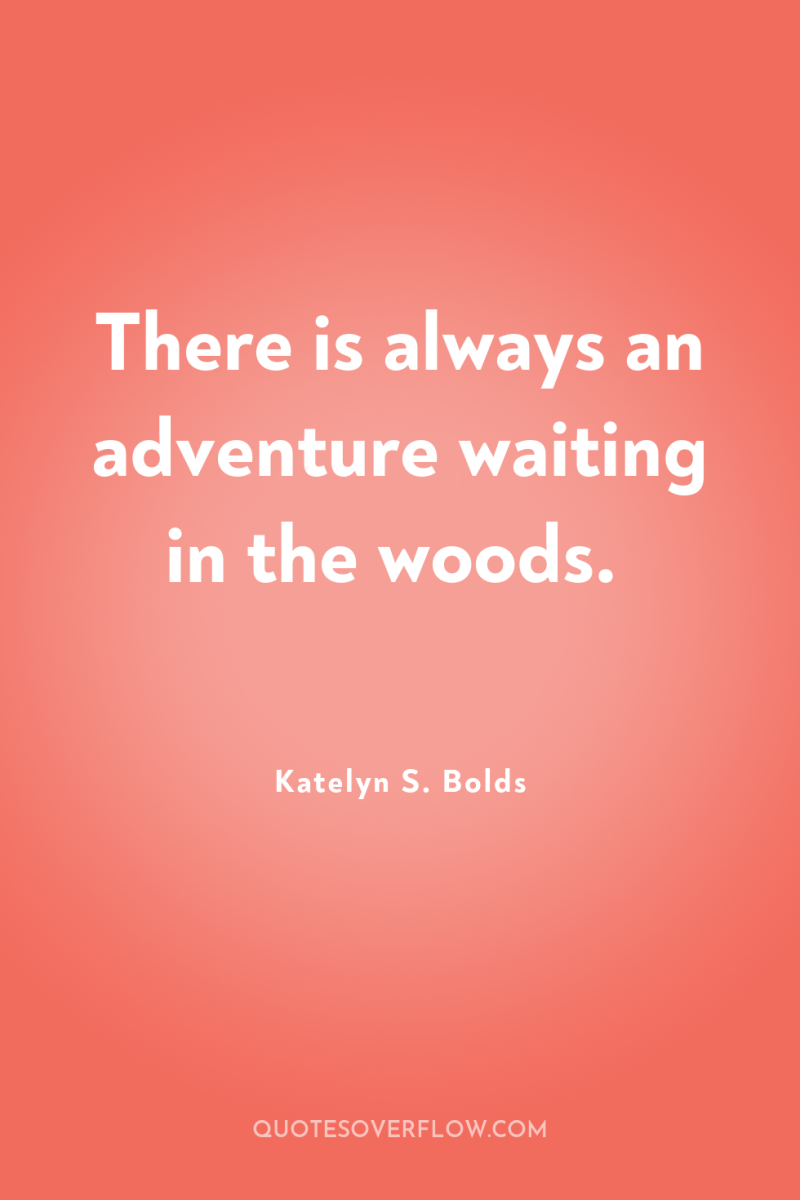
32
There is always an adventure waiting in the woods.Katelyn S. Bolds
33
I'd read the section in my guidebook about the trail's history the winter before, but it wasn't until now–a couple of miles out of Burney Falls, as I walked in my flimsy sandals in the early evening heat–that the realization of what that story meant picked up force and hit me squarely in the chest: preposterous as it was, when Catherine Montgomery and Clinton Clarke and Warren Rogers and the hundreds of others who'd created the PCT had imagined the people who would walk that high trail that wound down the heights of our western mountains, they'd been imagining me. It didn't matter that everything from my cheap knockoff sandals to my high-tech-by-1995-standards boots and backpack would have been foreign to them, because what mattered was utterly timeless. It was the thing that compelled them to fight for the trail against all the odds, and it was the thing that drove me and every other long-distance hiker onward on the most miserable days. It had nothing to do with gear or footwear or the backpacking fads or philosophies of any particular era or even with getting from point A to point B.It had only to do with how it felt to be in the wild. With what it was like to walk for miles for no reason other than to witness the accumulation of trees and meadows, mountains and deserts, streams and rocks, rivers and grasses, sunrises and sunsets. The experience was powerful and fundamental. It seemed to me that it had always felt like this to be a human in the wild, and as long as the wild existed it would always feel this way. That's what Montgomery knew, I supposed. And what Clarke knew and Rogers and what thousands of people who preceded and followed them knew. It was what I knew before I even really did, before I could have known how truly hard and glorious the PCT would be, how profoundly the trail would both shatter and shelter me. .Cheryl Strayed
34
What it is...is a place where I can return to myself. It's enough of a scramble to get to...that the energy expended is significant, and it translates into a change in my body chemistry and my psychological chemistry and my heart chemistry...Jay Salter
35
I would never have started this trip if I had known how tough it was, but I couldn't and wouldn't quit.Ben Montgomery
36
Of course women's walking is often construed as performance rather than transport, with the implication that women walk not to see but to be seen, not for their own experience but for that of a male audience, which means that they are asking for whatever attention they receive.Rebecca Solnit
37
The trees were friendly, they gave me rest and shadowed refuge. Slipping through them, I felt safe and competent. My whole body was occupied. I had little energy to think or worry.Aspen Matis
38
I was passive by nature. I had always been. Arguing felt unnatural and uncomfortable. I was always agreeing even when I didn’t really, instinctively looking for ways to forfeit power, to become more dependent, to be taken care of. I realized how intensely Icecap reminded me of Jacob. They were similar, both diligent and harsh in their judgments–and my big brother’s sureness had always comforted me. But as I ran on sore legs to keep up with Icecap, my tendency toward silence stressed me. .Aspen Matis
39
There was so little I wanted to carry. Packing my backpack took me all of four minutesAspen Matis
40
Today, she is standing at the top of a mountain and appreciating the majestic panoramic view of mesmerizing Himalaya. As a kid, she used to look up in the sky and wish for wings to fly up to the mountains. And now after a long wait of many years, she is standing here and living her dream. It’s the moment when she can’t believe her eyes because what she always dreamed of has come alive. She looks with amazement as if she’s witnessing a miracle. It is the moment of her life. She just wants to feel it. There are beautiful clouds below her and there are snow clad mountain peaks emerging from those clouds. The white peaks shining in blue sky among white clouds look like glittering diamonds to her. The view of the large lush green meadow surrounded by mountains under blue sky with a rainbow circling the horizon has put her in a state of tranquility. As the sun starts drowning in the horizon, the sky begins to boast his mystical colours. The beautiful mix of pink, orange and red looks like creating a twilight saga. She opens her both arm and takes a deep breath to entwine with the nature. The glimmering rays of the moon are paying tribute to her by kissing her warm cheeks and her eyes twinkle in bright moon light. She raises her face towards the moon and senses the flood of memories which she wants to unleash. The cool breeze lifts her ruffled hair and blows her skirt up. She closes her eyes and breathes deep as if she wants to let her know that she is finally here and then she opens her eyes and finds herself on the same wheelchair inside a room with an empty wall in front of her eye. Tears rolls down from her eye but these are the tears of Joy because she is living her dreams today. The feelings comes to her mind while waiting for her daughter who is coming back home today after her first expedition of a high range mountain ~ AB.Ashish Bhardwaj
41
On this walk I'd had so much time and space to actually figure out who I was without my mother's influence. I understood now: the things that my mother had found made her happy were not the same as the things that made me happy. And I understood: that was okay.Aspen Matis
42
Mountains should be climbed with as little effort as possible and without desire. The reality of your own nature should determine the speed. If you become restless, speed up. If you become winded, slow down. You climb the mountain in an equilibrium between restlessness and exhaustion. Then, when you’re no longer thinking ahead, each footstep isn’t just a means to an end but a unique event in itself. This leaf has jagged edges. This rock looks loose. From this place the snow is less visible, even though closer. These are things you should notice anyway. To live only for some future goal is shallow. It’s the sides of the mountain which sustain life, not the top. Here’s where things grow. But of course, without the top you can’t have any sides. It’s the top that defines the sides. So on we go–we have a long way–no hurry–just one step after the next–with a little Chautauqua for entertainment -- .Mental reflection is so much more interesting than TV it’s a shame more people don’t switch over to it. They probably think what they hear is unimportant but it never is.Robert M. Pirsig
43
...we’re not even really hiking, more like meandering in cinematic light.Kristen Henderson
44
Jesus was a hiker. The wilderness was His retreat.Toni Sorenson
45
Travel is the discovery of truth; an affirmation of the promise that human kind is far more beautiful than it is flawed. With each trip comes a new optimism that where there is despair and hardship, there are ideas and people just waiting to be energized, to be empowered, to make a difference for good.Dan Thompson
46
I was the director of my life, it was already true, and I would soon lead myself to my dreamed-of destinations. It was the task of my one thousand miles of solitude.Aspen Matis
47
I knew with certainty now– I could say no, and he would stop. Above all, I felt the fierce beauty of the choice. I knew now what it was that had held me from falling into my desire to be with him fully: I first needed to make sure he was a man who would respect my 'No.Aspen Matis
48
Feeling LOW? Go on mountains.Prajakta Mhadnak
49
Do you know how fast you are walking?. .. To get a close estimate, count the number of steps you take in a minute and divide by 30... :)Albina Fabiani
50
Set loose, a child would run down the paths, scramble up the rocks, lie on the earth. Grown-ups more often let their minds do the running, scrambling, and lying, but the emotion is shared. It feels good to be here.David Miller
51
The sensations she was asking about were very pleasant; some of them were nothing short of delicious; but to know them one simply had to go barefoot. I could sense a mixture of envy and fearful reserve. It was time to tell her what another barefoot hiker had once told me, when I had stood, still shod, on the edge of wanting to go barefoot: "Take off your shoes.Richard Keith Frazine
52
There is redemption in sadness. It tells me that for nearly five months in 2003, I lived life with the open, raw, refreshing outlook of the young. The payoff, though difficult to quantify, is much greater than I expected. I have no regrets about having gone -- it was the right thing to do. I think about it every day. Sometimes I can hardly believe it happened. I just quit -- and I was on a monumental trip. I didn't suffer financial ruin, my wife didn't leave me, the world didn't stop spinning. I do think of how regrettable it would have been had I ignored the pull that I felt to hike the trail. A wealth of memories could have been lost before they had even occurred if I had dismissed as a whim my inkling to hike. It is disturbing how tenuous our potential is due to our fervent defense of the comfortable norm.David Miller
53
You don’t need extra food, extra water, extra clothing for extra warmth — anything extra. You don’t need soap or deodorant. Everything you carry you should need daily.Aspen Matis
54
For all my life, I had been passive when faced with dangers. I was stunned as I swam to find that I had, for the first time in my history, asserted myself and been truly heard–respected. It felt monumental, I was buzzing with adrenaline. It was as if I’d become someone else entirely. I had escaped a kidnapper. It finally felt real. My body unclenched tension in the balmy pool. I was proud of the strength I’d found. I was the one who asserted he take me back; I caused him to listen. I was no longer a passive Doll Girl, trapped. This was me learning I could trust my voice– I’d used it, and it finally worked! I was triumphant. This escape showed me: I had grown, and grown vividly.Aspen Matis
55
I walked slowly to enjoy this freedom, and when I came out of the mountains, I saw the sky over the prairie, and I thought that if heaven was real, I hoped it was a place I never had to go, for this earth was greater than any paradise.Daniel J. Rice
56
Gazing around, looking up at the lofty pinnacles above, which seemed to pierce the sky, looking down upon the world, --it seemed the whole world, so limitless it stretched away at her feet, --feeling that infinite unspeakable sense of nearness to Heaven, remoteness from earth which comes only on mountain heights, she drew in a long breath of delight, and cried: "At last! at last, Alessandro! Here we are safe! This is freedom! This is joy! .Helen Hunt Jackson
57
I had feared this end, wondered where I would go from it, from the moment I first stepped on this footpath in the desert. But I found I was not afraid of reaching it now. I was happy. I hadn't found every answer for where I was going, but I now had all I needed to take these next steps. I knew I would do what I needed to become a writer now.Aspen Matis
58
All I could think as he was speaking was that, if he touched me at all, all the miles I’d walked, the pain I’d felt, the beauty I’d drunken like milk, like good wine making me happy, the four million steps I’d taken, would all add up to nothing. They’d be stolen. They’d vanish like the teeth children lose when they get hit. Only after the blood was washed away would I see that they were gone. .Aspen Matis
59
Living as Wild Child, I could no longer be Debby Parker comfortably – this name that I’d been given at birth that defined me before I’d had the chance to define myself.Aspen Matis
60
I was no longer following a trail. I was learning to follow myself.Aspen Matis
61
Though I was starved for contact, I didn’t stop to talk to any of these strangers. I had forgotten how to convincingly speak the polite things strangers say to each other.Aspen Matis
62
He understood. In lovesickness we had found a common language.Aspen Matis
63
I was able to pitch a tent and carry a backpack twenty-five miles a day through mountains– I’d mastered a thousand amazing physical feats–physically I’d become undeniably confident and capable–but physical weakness had never been the problem that I had. My true problem had been passivity, the lifelong-conditioned submission that became my nature.Aspen Matis
64
I needed to begin respecting my own body’s boundaries. I had to draw clear lines. Ones that were sound in my mind and therefore impermeable, and would always, no matter where I walked, protect me. Moving forward, I wanted rules.Aspen Matis
65
Childhood is a wilderness.Aspen Matis
66
When we apply the lessons we've struggled for our whole lives to learn to the lives of people we love, our love becomes judgment–which is toxic. Our fear our daughters will fail leads us to fail them.Aspen Matis
67
It was suddenly Technicolor clear: the only thing holding me from giving myself vision this entire time had actually simply been me. I saw how in the fall and winter of my childhood, I'd walked through the golden aspens. And then I simply committed and gave myself my own eyes. I had once again proven that again alone, I was again enough.Aspen Matis
68
Children believe they are immortal, death is an empty word like the name of a country they’ve never been to on a time-faded map. I wasn’t a child anymore.Aspen Matis
69
The night Junior stayed, my right to myself was taken from me in a way that had felt more final than ever before. Then the school had denied my rape–my word. The subsequent silencing and exile–misplaced shame–were the catalysts for me to finally break free of my mother's grasp and my voicelessness and do what I truly wanted, alone. I wished to prove myself as independent and valid and strong–to my mother, and to the world. I'd believed I had needed something huge and external that no one could deny was impressive, so I could show my family I was able–so they could finally know that I was strong. Instead I had shown myself. And it felt wonderful. .Aspen Matis
70
Because I feared I couldn't walk to Newton Centre without her, I needed to hike through desert, snow and woods alone. Childhood is a wilderness.Aspen Matis
71
It was heartbreaking to realize how we can fail the people we most love without even trying.Aspen Matis
72
I'd have to be impolite, an inconvenience, and sometimes awkward. But if I could commit, all that discomfort would add up to zap predatory threads like a Taser gun. I'd stun them. They'd bow to me. I'd let my no echo against the mountains. And better to feel bad for a moment saying no–and stop it–than to get harmed. I would take better care. That small word, no. I'd see its deity.Aspen Matis
73
I made a conscious effort to name my needs and desires. To carefully listen to and accurately identify what I felt. Hunger, exhaustion, cold, lower-back ache, thirst. The ephemeral pangs: wistfulness and loneliness. Rest fixed most things. Sleep was my sweet reward. I treated bedtime as both incentive and sacrament.Aspen Matis
74
Maybe I'd die. Maybe I'd burn to ash in wind, or blacken like the pines. Charred skeletons, I'd add one to the count. I didn't feel scared. I didn't think to panic. The trail wasn't burning. I was raw, ripe for loving. I wasn't stopping.Aspen Matis
75
If I could mark clearly, convincingly and consistently what was good for me and also what was bad–if I could say yes and also no, as if it were the law–it would become my law.Aspen Matis
76
I had once again proven that again alone, I was again enough.Aspen Matis
77
Jumping from boulder to boulder and never falling, with a heavy pack, is easier than it sounds; you just can't fall when you get into the rhythm of the dance.Jack Kerouac
78
Getting to the top is optional. Getting down is mandatory.Ed Viesturs